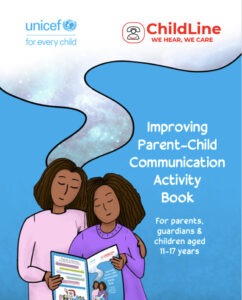[et_pb_section fb_built=”1″ _builder_version=”4.5.7″ da_disable_devices=”off|off|off” da_is_popup=”off” da_exit_intent=”off” da_has_close=”on” da_alt_close=”off” da_dark_close=”off” da_not_modal=”on” da_is_singular=”off” da_with_loader=”off” da_has_shadow=”on”][et_pb_row _builder_version=”4.5.7″ _module_preset=”default”][et_pb_column type=”4_4″ _builder_version=”4.5.7″ _module_preset=”default”][et_pb_post_title _builder_version=”4.5.7″ _module_preset=”default” title_level=”h2″][/et_pb_post_title][/et_pb_column][/et_pb_row][et_pb_row _builder_version=”4.5.7″ custom_margin=”-36px|auto||auto||”][et_pb_column type=”4_4″ _builder_version=”4.4.6″][et_pb_text _builder_version=”4.9.1″ hover_enabled=”0″ sticky_enabled=”0″]
How often does it happen?
According to the World Health Organization, approximately 800,000 people die by suicide per year, and for each of these deaths, there are more than 20 suicide attempts. This means there are approximately 16,000,000 attempts globally each year. Each year, death by suicide accounts for more deaths than war and homicide combined. The WHO also reported that it is the second leading cause of death among those aged 15-29 years, second only to vehicular accidents. Moreover, many teens, despite not attempting it, often report having thoughts of suicide or how they would accomplish it.
No teen is immune to mental health struggles or other issues that can act as driving factors towards a suicide attempt. As a parent, even if you believe that you know everything about your child and what they go through daily, it isn’t usually obvious that they’re in pain or desperately in need of support.
What makes a teen vulnerable?
Suicidal thoughts or attempts can sometimes be triggered by external and internal mental and emotional issues. This can be from the stress of being a teen, having a hard time at school, being bullied, experiencing a rough breakup, failure, rejection, or family trouble. Suicide can sometimes be an impulsive response to these or the response to a long-term struggle that they feel unable to get past.
Some frequent, and often hidden, reasons teens may consider suicide are:
- Difficulty coping with a psychological disorder, e.g. depression, anxiety, or bipolar disorder.
- Uncertainty about sexual orientation and/or gender identity, and the social stigma that may come with it.
- Experiencing sexual assault, sexual abuse, or rape.
- Experiencing any form of abuse inside or outside of the home.
- Struggles with substance abuse; drugs and/or alcohol.
- Struggles with a chronic illness or severe injury.
- Struggles with grief over the loss of a loved one.
- Exposure to the suicide of someone else, especially if this is someone close to them.
What are some of the warning signs?
Although no one can predict with 100% certainty that someone is considering or planning suicide, some key warning signs can indicate a cry for help or just a need for extra support. Here are some behaviours to look out for:
- They say or write (physically or on social media) eerie statements like, “You won’t have to worry about me soon”.
- They have severe and seemingly unpredictable mood swings, often to negative emotions.
- Their sleeping and/or eating patterns have changed drastically, perhaps without any external reason.
- They withdraw from social contact with family and/or friends.
- They show little regard for their safety, perhaps by driving recklessly, experimenting with drugs or alcohol, or hanging out with people they don’t know.
- They start giving away many of their belongings for no reason, perhaps even saying something like, “I won’t need them anymore”.
- They start apologizing frequently or referring to themselves as a burden to the family.
How can you deal with it if you suspect it?
Don’t be afraid to ask them about it. Talking about it or saying the word ‘suicide’ will not give them ideas or encourage them to go through with it. Instead, it will show them that you’ve noticed them struggling, even if you don’t quite understand yet. Be willing to listen to everything they have to say, without interrupting or challenging what they say.
Don’t hesitate to show them love and reassure them that you’re willing to do what it takes to help them work through their pain. There’s also no shame in seeking professional help if you need to. In addition to your support, teens considering suicide generally need the support of a professional and qualified psychologist or psychiatrist who can give them objective guidance through their issues.
Get Help!
If you or someone you know is struggling with suicidal thoughts, please feel free to contact ChildLine’s’toll-free helpline at 131 of 800 4321. We’re available 24/7 365 whenever you need to talk.
[/et_pb_text][/et_pb_column][/et_pb_row][/et_pb_section]







